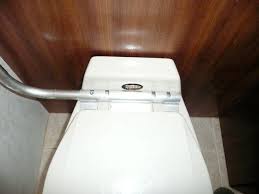3 Must-Know Maintenance Tips For Your Pacific Coast RV

If you seasonally use your RV, or if it is your primary residence, it is important to maintain and keep your RV in good condition. An RV has many moving parts that must be routinely tuned and maintained to sustain the joy of the experience. The following are three must-know tips you should learn in order to obtain a healthy Pacific Coast RV and to extend the lifetime of your fun and adventures.
The generator needs to be maintained and tested out on a regular basis. Just like you wouldn’t want to leave gas sitting in your car while it is inoperable for long periods of time, the same goes for that RV generator.
When you let your generator sit with gasoline, many things can happen. It can shorten the life span of the generator and can cause intermittent issues that could have been easily fixed if only it was maintained properly.
If you are not regularly using your generator then establish a time once a month to run it with about 50% load for at least two hours. This will keep the generator oiled and in a good working state for whenever it is needed next.
Keeping on top of seals and weather stripping can prevent any moisture leaks from the elements outside. Seals and weather stripping naturally breakdown over time, as they are constantly exposed to all sorts of elements. When a seal breaks down it could allow water to leak in and damage multiple types of surfaces depending on where the leak is.
A leaky seal if not repaired in a timely manner, it could possibly even allow mold to start growing. By checking the seals around all windows and doors every few months, you can be ahead of the game in keeping moisture and mold out of your RV. Another good habit to get into is to inspect your roof and make any necessary repairs every six months.
Most maintenance tips for your RV could be pricey, but not all of them are. When you are not using your RV and it is sitting, be sure to open up all of the vents, as the temperature inside could exceed over 140 degrees depending on where you are storing your RV and what time of the year it is.
When the inside structure of your RV is exposed to this kind of heat, it can cause seals, seams, floorings, and wall coverings to deteriorate, according to tips offered in a related RV Owner’s Forum. When your RV vents are kept open, however, this allows air to flow throughout the vehicle, and will naturally keep the temperature down.
When you open your vents, perform an inspection of the external vents to make sure that they are covered in some way to avoid any rain water from getting inside. It is always a plus if you do store your RV to find a storage spot that is covered, this could add years to the lifespan of your RV.
By following these simple tips, you can keep your RV in pristine condition. Happy travels!
